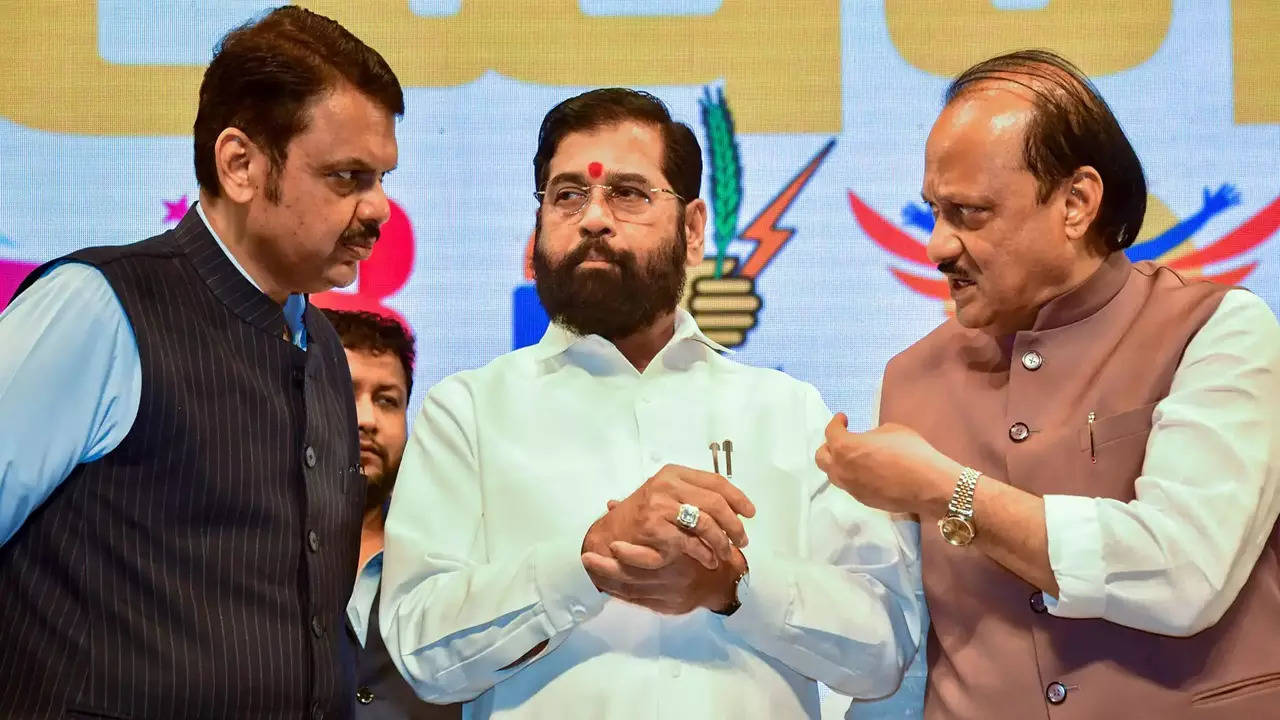 |
|
The recent Maharashtra Assembly elections have concluded with a resounding victory for the BJP-led Mahayuti alliance. Preliminary results indicate a commanding lead, securing over 228 seats and paving the way for the formation of a new government. This outcome holds significant implications for the state's political landscape, particularly considering the internal divisions within the Shiv Sena and the Nationalist Congress Party (NCP) that preceded the election. The election served as a crucial referendum on the legitimacy of the factions formed after the splits within these prominent parties. Eknath Shinde's faction of the Shiv Sena, formed after a significant power struggle with Uddhav Thackeray, has emerged victorious, effectively settling the debate surrounding which faction represents the 'real' Shiv Sena. The decisive victory for Shinde's faction demonstrates a significant shift in public opinion and support within the state. His alliance with the BJP proved to be a key factor in this electoral success.
Similarly, Ajit Pawar's faction of the NCP, formed after his break from his uncle Sharad Pawar's leadership, has also experienced significant success. This outcome also settles the internal conflict within the NCP, solidifying Ajit Pawar's position as a major political player in Maharashtra. His strategic alliance with the BJP further strengthened the Mahayuti's position and contributed to their overall triumph. The election results clearly indicate that the electorate has largely sided with the BJP-led alliance and its partners, including the factions led by Shinde and Pawar. This suggests a strong public mandate for the alliance's policies and agenda for the state.
Conversely, both Uddhav Thackeray's faction of the Shiv Sena and Sharad Pawar's faction of the NCP suffered significant setbacks. The results highlight a considerable loss of public support for these factions, signifying a major shift in the political dynamics of Maharashtra. The limited number of seats secured by these factions suggests a need for reevaluation of their political strategies and a potential realignment of their alliances in the future. The clear victory of the BJP-led Mahayuti is a testament to the effectiveness of their election strategy and their ability to consolidate support, especially in the context of the internal divisions within the opposition parties. The success of Shinde and Pawar's factions presents a new power structure in Maharashtra politics, setting the stage for the next chapter in the state's political history.
The implications of this election extend beyond the immediate formation of a new government. The outcome fundamentally reshapes the political landscape of Maharashtra, signaling a shift in the balance of power within the state. This will undoubtedly affect various policy decisions and future political alliances in the coming years. The success of the BJP-led alliance and its key partners has implications for the upcoming national elections as well, potentially influencing the national political discourse. The impact of this election will extend far beyond the borders of Maharashtra, affecting alliances and political strategies throughout the country. The clear mandate demonstrated by the electorate provides valuable insights into the current political climate and public sentiment in Maharashtra, shaping future political strategies and alliances across the state.
The analysis of these election results requires considering various factors, including the effectiveness of the respective campaigns, the underlying socio-economic conditions of the state, and the evolving political alliances. Further research and analysis will be crucial in understanding the longer-term consequences of this election and its impact on the broader Indian political scene. The results provide a unique case study for understanding the dynamics of intra-party divisions, their impact on electoral outcomes, and the strategies employed to overcome such challenges. The long-term impact on Maharashtra's politics and governance remains to be seen, however, the outcome offers a significant departure from the established political order and creates a new context for political maneuvering in the years to come. The post-election scenario will be dominated by questions of governance, policy implementation and the evolving relationships between the different political players involved.
In conclusion, the Maharashtra Assembly elections of 2023 have delivered a decisive victory for the BJP-led Mahayuti, with Eknath Shinde and Ajit Pawar emerging as key figures in this success. The results represent a significant realignment of political power within Maharashtra, settling long-standing internal conflicts within the Shiv Sena and the NCP. This shift in the political landscape will undoubtedly have significant consequences for the state's future governance, political alliances, and overall direction. The success of Shinde and Pawar has brought stability, however unexpected, to a formerly fractured political landscape and provides a clear mandate for the BJP-led government's vision for Maharashtra. The events of this election will be subject to extensive analysis for years to come, highlighting its importance in shaping Maharashtra’s political future and adding to the broader understanding of Indian politics.
